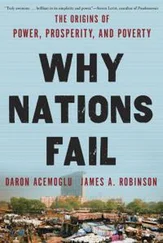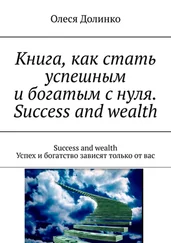Adam Smith - Wealth of Nations
Здесь есть возможность читать онлайн «Adam Smith - Wealth of Nations» — ознакомительный отрывок электронной книги совершенно бесплатно, а после прочтения отрывка купить полную версию. В некоторых случаях можно слушать аудио, скачать через торрент в формате fb2 и присутствует краткое содержание. Жанр: unrecognised, на английском языке. Описание произведения, (предисловие) а так же отзывы посетителей доступны на портале библиотеки ЛибКат.
- Название:Wealth of Nations
- Автор:
- Жанр:
- Год:неизвестен
- ISBN:нет данных
- Рейтинг книги:4 / 5. Голосов: 1
-
Избранное:Добавить в избранное
- Отзывы:
-
Ваша оценка:
- 80
- 1
- 2
- 3
- 4
- 5
Wealth of Nations: краткое содержание, описание и аннотация
Предлагаем к чтению аннотацию, описание, краткое содержание или предисловие (зависит от того, что написал сам автор книги «Wealth of Nations»). Если вы не нашли необходимую информацию о книге — напишите в комментариях, мы постараемся отыскать её.
Adam Smith's masterpiece, first published in 1776, is the foundation of modern economic thought and remains the single most important account of the rise of, and the principles behind, modern capitalism. Written in clear and incisive prose, The Wealth of Nations articulates the concepts indispensable to an understanding of contemporary society.
Wealth of Nations — читать онлайн ознакомительный отрывок
Ниже представлен текст книги, разбитый по страницам. Система сохранения места последней прочитанной страницы, позволяет с удобством читать онлайн бесплатно книгу «Wealth of Nations», без необходимости каждый раз заново искать на чём Вы остановились. Поставьте закладку, и сможете в любой момент перейти на страницу, на которой закончили чтение.
Интервал:
Закладка:
Whatever obstructs the free circulation of labour from one employment to another obstructs that of stock likewise; the quantity of stock which can be employed in any branch of business depending very much upon that of the labour which can be employed in it. Corporation laws, however, give less obstruction to the free circulation of stock from one place to another than to that of labour. It is everywhere much easier for a wealthy merchant to obtain the privilege of trading in a town corporate, than for a poor artificer to obtain that of working in it.
The obstruction which corporation laws give to the free circulation of labour is common, I believe, to every part of Europe. That which is given to it by the Poor Laws is, so far as I know, peculiar to England. It consists in the difficulty which a poor man finds in obtaining a settlement, or even in being allowed to exercise his industry in any parish but that to which he belongs. It is the labour of artificers and manufacturers only of which the free circulation is obstructed by corporation laws. The difficulty of obtaining settlements obstructs even that of common labour. It may be worth while to give some account of the rise, progress, and present state of this disorder, the greatest perhaps of any in the police of England.
When by the destruction of monasteries the poor had been deprived of the charity of those religious houses, after some other ineffectual attempts for their relief, it was enacted by the 43rd of Elizabeth, c. 2, that every parish should be bound to provide for its own poor; and that overseers of the poor should be annually appointed, who, with the churchwardens, should raise by a parish rate competent sums for this purpose.
By this statute the necessity of providing for their own poor was indispensably imposed upon every parish. Who were to be considered as the poor of each parish became, therefore, a question of some importance. This question, after some variation, was at last determined by the 13th and 14th of Charles II when it was enacted, that forty days' undisturbed residence should gain any person a settlement in any parish; but that within that time it should be lawful for two justices of the peace, upon complaint made by the churchwardens or overseers of the poor, to remove any new inhabitant to the parish where he was last legally settled; unless he either rented a tenement of ten pounds a year, or could give such security for the discharge of the parish where he was then living, as those justices should judge sufficient.
Some frauds, it is said, were committed in consequence of this statute; parish officers sometimes bribing their own poor to go clandestinely to another parish, and by keeping themselves concealed for forty days to gain a settlement there, to the discharge of that to which they properly belonged. It was enacted, therefore, by the 1st of James II that the forty days' undisturbed residence of any person necessary to gain a settlement should be accounted only from the time of his delivering notice in writing, of the place of his abode and the number of his family, to one of the churchwardens or overseers of the parish where he came to dwell.
But parish officers, it seems, were not always more honest with regard to their own, than they had been with regard to other parishes, and sometimes connived at such intrusions, receiving the notice, and taking no proper steps in consequence of it. As every person in a parish, therefore, was supposed to have an interest to prevent as much as possible their being burdened by such intruders, it was further enacted by the 3rd of William III that the forty days' residence should be accounted only from the publication of such notice in writing on Sunday in the church, immediately after divine service.
"After all," says Doctor Burn, "this kind of settlement, by continuing forty days after publication of notice in writing, is very seldom obtained; and the design of the acts is not so much for gaining of settlements, as for the avoiding of them, by persons coming into a parish clandestinely: for the giving of notice is only putting a force upon the parish to remove. But if a person's situation is such, that it is doubtful whether he is actually removable or not, he shall by giving of notice compel the parish either to allow him a settlement uncontested, by suffering him to continue forty days; or, by removing him, to try the right."
This statute, therefore, rendered it almost impracticable for a poor man to gain a new settlement in the old way, by forty days' inhabitancy. But that it might not appear to preclude altogether the common people of one parish from ever establishing themselves with security in another, it appointed four other ways by which a settlement might be gained without any notice delivered or published. The first was, by being taxed to parish rates and paying them; the second, by being elected into an annual parish office, and serving in it a year; the third, by serving an apprenticeship in the parish; the fourth, by being hired into service there for a year, and continuing in the same service during the whole of it.
Nobody can gain a settlement by either of the two first ways, but by the public deed of the whole parish, who are too well aware of the consequences to adopt any new-comer who has nothing but his labour to support him, either by taxing him to parish rates, or by electing him into a parish office.
No married man can well gain any settlement in either of the two last ways. An apprentice is scarce ever married; and it is expressly enacted that no married servant shall gain any settlement by being hired for a year. The principal effect of introducing settlement by service has been to put out in a great measure the old fashion of hiring for a year, which before had been so customary in England, that even at this day, if no particular term is agreed upon, the law intends that every servant is hired for a year. But masters are not always willing to give their servants a settlement by hiring them in this manner; and servants are not always willing to be so hired, because, as every last settlement discharges all the foregoing, they might thereby lose their original settlement in the places of their nativity, the habitation of their parents and relations.
No independent workman, it is evident, whether labourer or artificer, is likely to gain any new settlement either by apprenticeship or by service. When such a person, therefore, carried his industry to a new parish, he was liable to be removed, how healthy and industrious soever, at the caprice of any churchwarden or overseer, unless he either rented a tenement of ten pounds a year, a thing impossible for one who has nothing but his labour to live by; or could give such security for the discharge of the parish as two justices of the peace should judge sufficient. What security they shall require, indeed, is left altogether to their discretion; but they cannot well require less than thirty pounds, it having been enacted that the purchase even of a freehold estate of less than thirty pounds' value shall not gain any person a settlement, as not being sufficient for the discharge of the parish. But this is a security which scarce any man who lives by labour can give; and much greater security is frequently demanded.
In order to restore in some measure that free circulation of labour which those different statutes had almost entirely taken away, the invention of certificates was fallen upon. By the 8th and 9th of William III it was enacted that if any person should bring a certificate from the parish where he was last legally settled, subscribed by the churchwardens and overseers of the poor, and allowed by two justices of the peace, that every other parish should be obliged to receive him; that he should not be removable merely upon account of his being likely to become chargeable, but only upon his becoming actually chargeable, and that then the parish which granted the certificate should be obliged to pay the expense both of his maintenance and of his removal. And in order to give the most perfect security to the parish where such certificated man should come to reside, it was further enacted by the same statute that he should gain no settlement there by any means whatever, except either by renting a tenement of ten pounds a year, or by serving upon his own account in an annual parish office for one whole year; and consequently neither by notice, nor by service, nor by apprenticeship, nor by paying parish rates. By the 12th of Queen Anne, too, stat. 1, c. 18, it was further enacted that neither the servants nor apprentices of such certificated man should gain any settlement in the parish where he resided under such certificate.
Читать дальшеИнтервал:
Закладка:
Похожие книги на «Wealth of Nations»
Представляем Вашему вниманию похожие книги на «Wealth of Nations» списком для выбора. Мы отобрали схожую по названию и смыслу литературу в надежде предоставить читателям больше вариантов отыскать новые, интересные, ещё непрочитанные произведения.
Обсуждение, отзывы о книге «Wealth of Nations» и просто собственные мнения читателей. Оставьте ваши комментарии, напишите, что Вы думаете о произведении, его смысле или главных героях. Укажите что конкретно понравилось, а что нет, и почему Вы так считаете.












